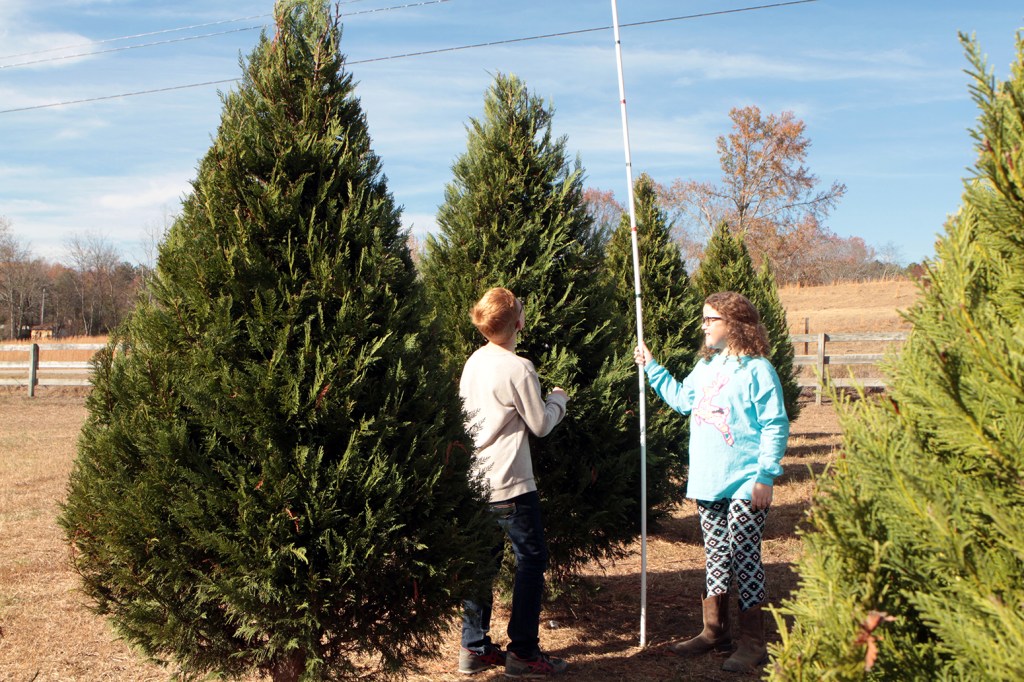OUT ON A LIMB: Christmas trees not severely hurt by ongoing drought
Published 6:45 am Wednesday, November 23, 2016

- Carter Rayburn, left, and Tessa George measure a tree Nov. 22, 2016, at the Trim-a-Tree farm in east Athens, Alabama.
When commercial horticulture expert Doug Chapman was asked Tuesday if consumers should be worried about this year’s Christmas tree crop, his answer was simple and succinct: “No.”
The ongoing and worsening drought that has had crippling effects on North Alabama prompted the question. Chapman, who works as a Regional Extension Agent III, simply said the varieties of trees more commonly grown for Christmas trees are simply more drought-tolerant and can stand the strain.
Chapman was careful to say that his opinion isn’t necessarily a guarantee on the health of a Christmas tree and that buyers should still use caution. Because Alabama isn’t known for Christmas tree production, trees are often shipped in from North Carolina, Pennsylvania, Michigan, Wisconsin and Virginia.
“You pick out a tree based on how it looks,” he said. “Just choose wisely and try to get the most lush, green tree you can find.”
The two varieties of Christmas tree most common in Alabama are the Virginia pine and Leyland cypress. Chapman said some growers have momi fir trees (also known as Abies firma), but they take longer to grow.
Athens’ only Christmas tree farm, Trim-a-Tree farm, has about 3,000 trees, though only 2,000 will be available for cutting when the farm opens Friday. The majority of those are Leyland cypress, though there are also some Carolina sapphire cypress trees.
Jo George, who owns and operates the farm at 15250 Line Road, with her husband Kip George, said this year’s trees look good. There were a few trees that “struggled” in the drought, so those were cut. The drought is typically harder on seedlings, so the Georges soaked the seedlings’ roots in water and fertilized them.
“They did very well and we lost just a few of them,” she said.
And while this year’s crop hasn’t been devastated, conditions at the farm are still dry. For that reason, the farm has enacted a no smoking policy.
The most popular size for a real tree is 5 feet and taller, though there are some trees on the property that are 14 feet tall. George explained it takes three years to grow a 5-foot tree.
Because some of the worse-for-wear cypress trees were cut early, George said there was a fear there may not be enough for consumers. To help alleviate concerns, the farm ordered about 200 Fraser fir trees from North Carolina. George said she’ll order more if they are popular sellers.
“They were cut the day before we got them, and they’re absolutely beautiful,” she said of the firs.
This weekend will likely be the busiest of the season for the farm. In addition to tractor rides, the farm will have baby donkeys for petting and ponies for riding.
The farm typically stays open through Christmas Eve each year. When asked if there were people who purchased a Christmas tree on Christmas Eve, George said they have a few such customers each year.
“It’s usually people who didn’t think they would have family coming in,” she said. “Sometimes it’s someone in the military who wants to come out with their family.”





